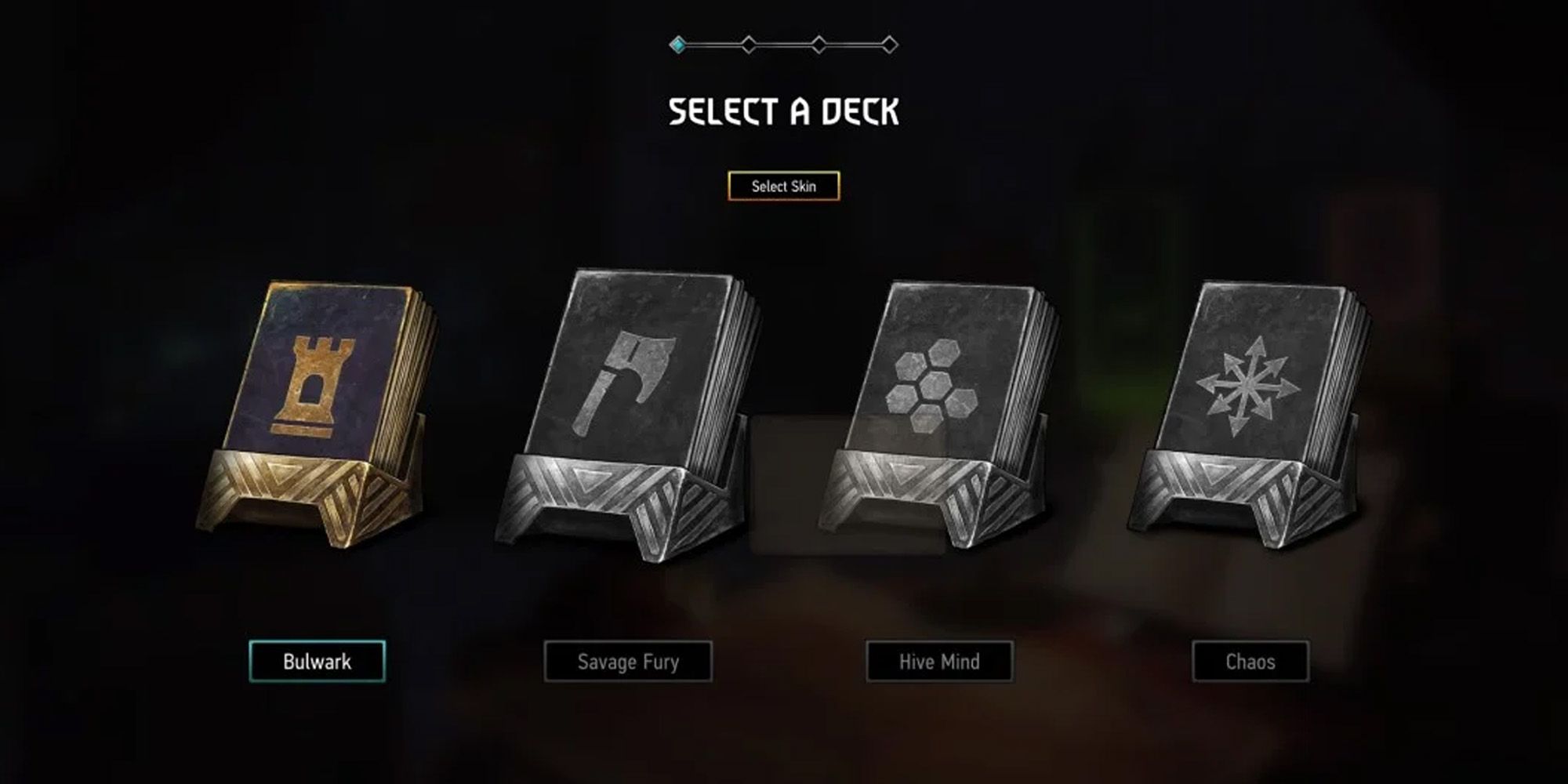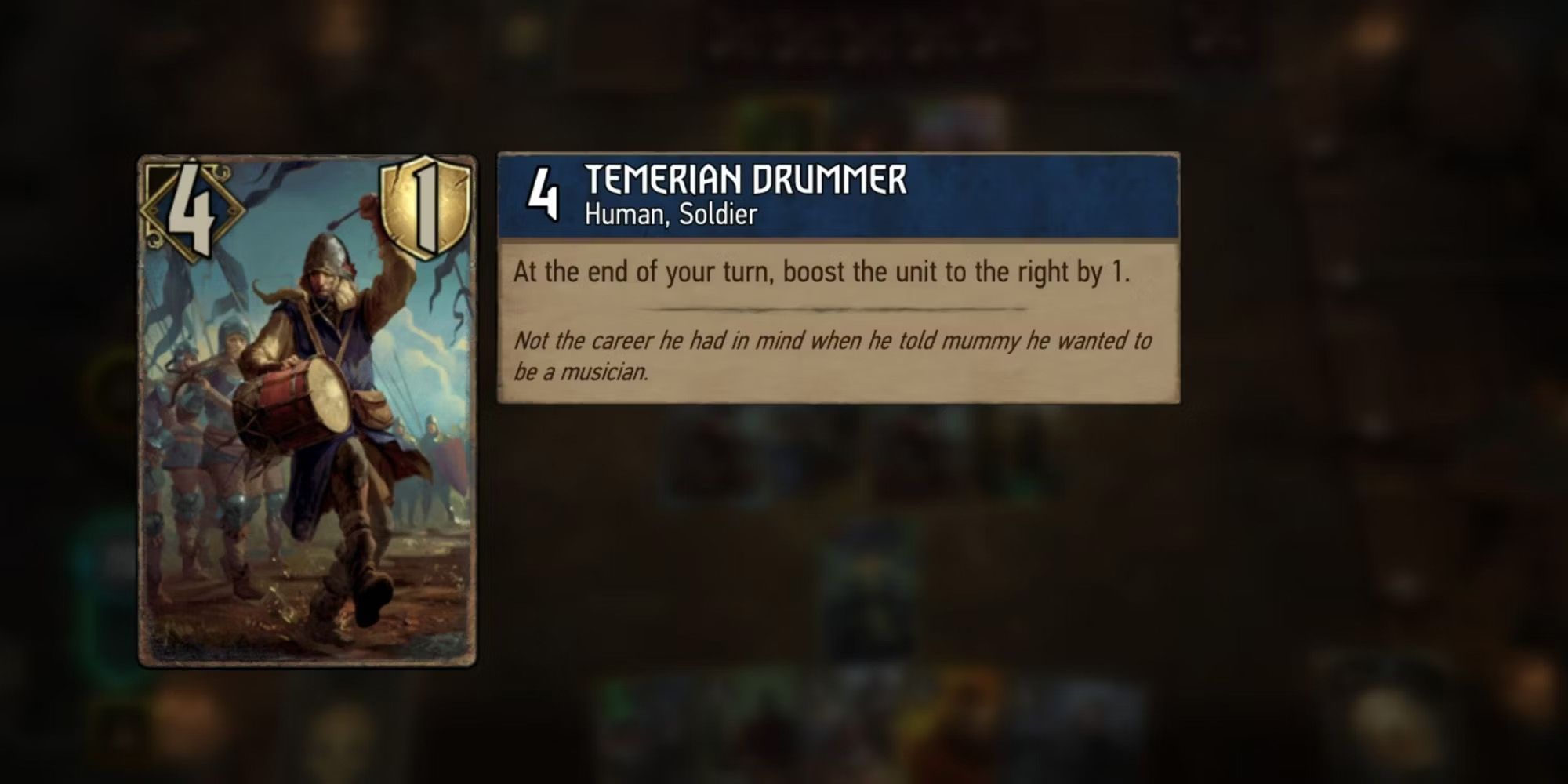One of the new types of decks players can use in Gwent: Rogue Mage is the Bulwark deck. Gwent: Rogue Mage is the new single-player expansion to Gwent, an online multiplayer strategy card game based on the mini-game from The Witcher 3. While the spin-off game differs slightly from the Witcher 3 version, they have become immensely popular as their own fully fledged games. Players wanted to be able to enjoy Gwent offline, and Gwent: Rogue Mage delivered as a standalone experience.
There are different types of decks that players can build in Gwent: Rogue Mage, and the Bulwark deck is the first one that players receive in the game. It's the easiest deck to learn how to use, so beginners who are not used to card-based strategy games or the Gwent and Witcher universes can get acclimated to the game's mechanics. The other decks are the Savage Fury deck which unlocks at level 15, the Hive Mind deck which unlocks at level 25, and the Chaos deck which unlocks at level 45. Even though players can choose the three other Gwent Rogue Mage decks, the Bulwark deck is an excellent choice to play throughout the entire game.
Bulwark decks in Gwent: Rogue Mage function best around the boosting mechanic, which increases the level of cards. A card's level serves two functions: it's HP and players' victory points. Cards can be damaged throughout a game of Gwent, and the higher HP it has, the higher chance it will survive. The total number of points of all the cards on the table make up the victory points; whoever has the highest victory points at the end of the match wins. Therefore, a strong Bulwark boosting deck has the potential to win many rounds of Gwent.
Bulwark Deck Tips for Gwent: Rogue Mage
Since the main mechanic of the Gwent Rogue Mage Bulwark deck is boosting, players should use the Deck Leader Lylianna's power when possible. When players use Alzur's spells, Lylianna will automatically add 3 strength to a random card on the table. Players can cast a spell at the beginning of each hand, and one of those spells is to add strength to a card, so theoretically players can add up to six points to cards and the victory points in a round. This is the Cleanse spell, and it should be used primarily over the other spells, Thunder and Portal.
Several of the Gwent Rogue Mage cards are excellent boosting cards, which play well with the Bulwark deck:
- Temerian Drummer - this card boosts the card on its right by 1 point each turn. If played early, players can increase a card's points to well over 20 points.
- Tridam Infantry - this card works well when boosted by the Temerian Drummer. Tridam Infantry damages an enemy unit by 1 each time it's boosted, so if the Temerian Drummer boosts it each turn, the Tridam Infantry will always be doing damage to the enemy deck.
- Aedirnian Mauler - this card works the same as the Tridam Infantry and can be used as a substitute. However, the Aedirnian Mauler will do the same amount of damage as the boost it's given, so if the sorceress mage Lylianna boosts it by 3, it will do 3 damage to an enemy card.
- Prince Stennis - provides a one-time boost to another card.
In addition to these boosting powerhouses, players will find powerful damage cards that work well for the Gwent: Rogue Mage Bulwark deck. Ramon Tyrconnel and One-Eyed Betsy provide additional cards and deal damage, so players should include them when building a strong deck.
Gwent: Rogue Mage is available for PC, Android, and iOS.


